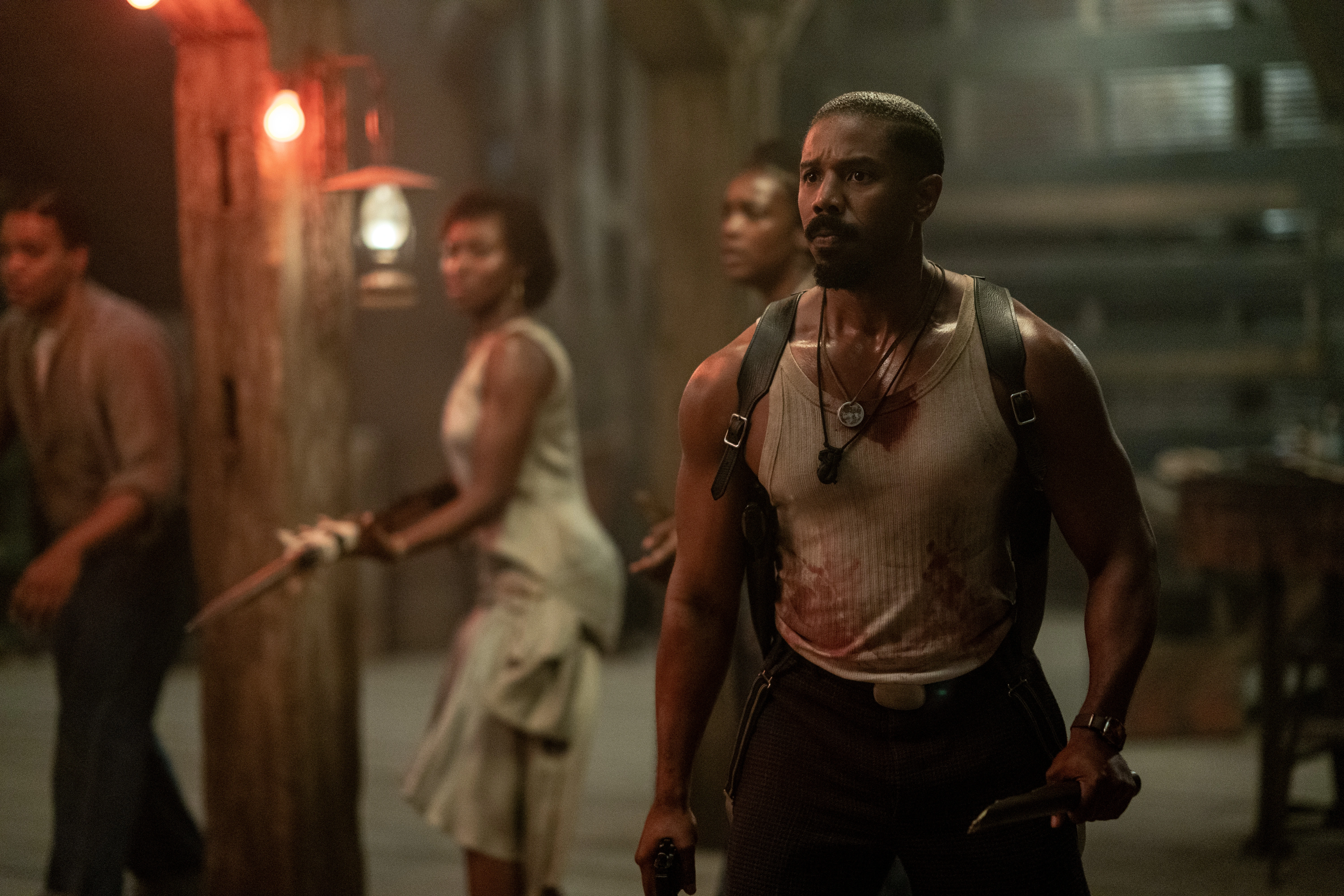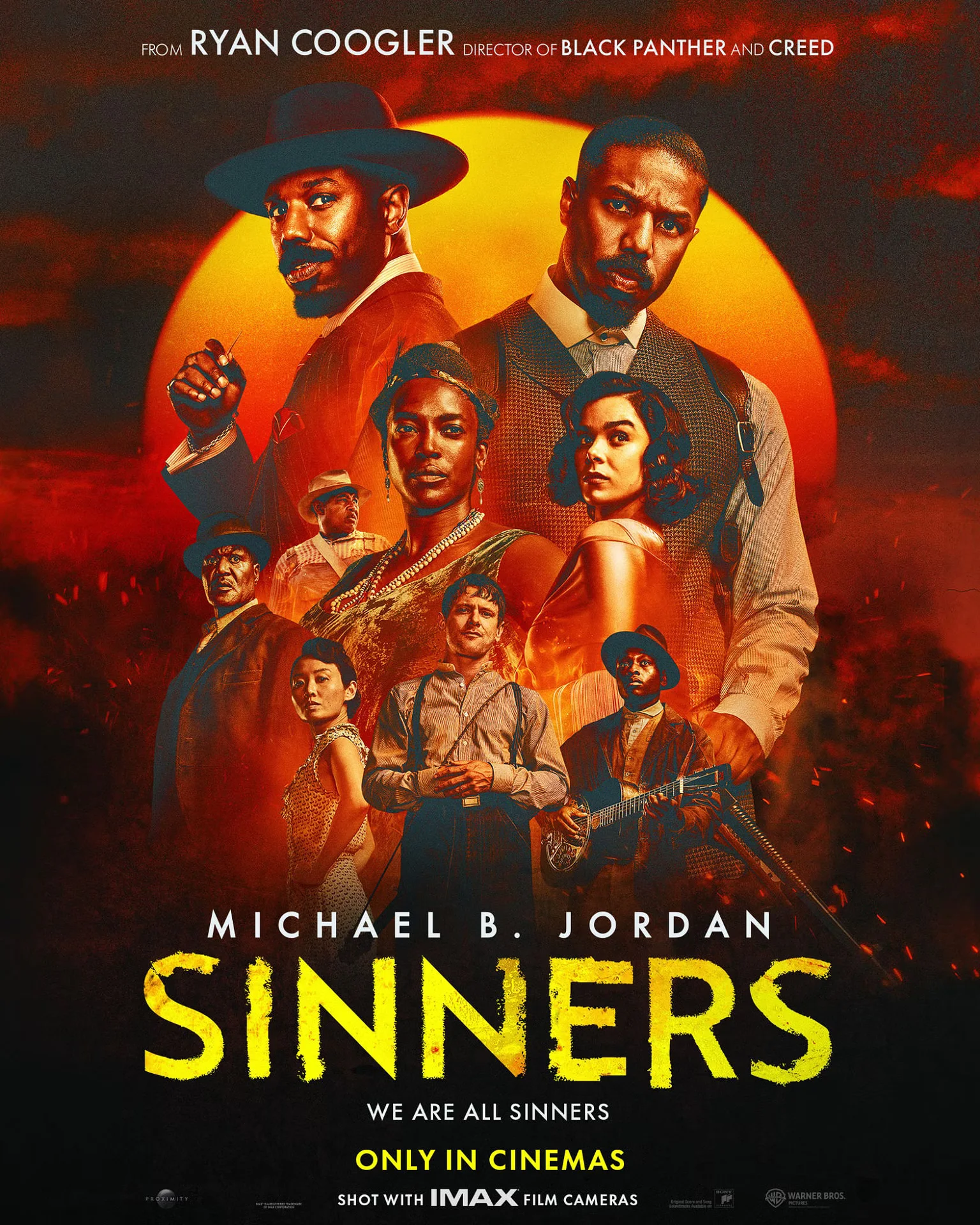Black Panther director Ryan Coogler is currently at the centre of a worldwide debate, due to the atypical details surrounding the release of his latest smash hit, Sinners. Sinners is a supernatural horror film- with long-term collaborator Michael B. Jordan starring in a dual role as twins- set in the South of the US during the Jim Crow era, about two brothers who open a juke joint for the local Black community and unknowingly invoke a horde of white vampires with their soulful music. Its appeal stems from a magical combination: blood, sex, vampires, an incredible soundtrack by Oscar-winning composer Ludwig öransson and what seems to be Michael B. Jordan’s best performance yet.
Sinners, which openly discusses themes of systemic racism and Black ownership, is in the hot seat because of the conditions of the contract Coogler presented during the studio bidding war, during its pre-production phase. This contract’s terms were very unusual, because Coogler pushed to retain final cut and first-dollar gross privileges , and- more importantly- for Sinners’ ownership rights to revert to him 25 years from now. This repelled all studios but Warner Bros., due to it upsetting the power they usually hold with their ownership of rights over cinematic back catalogues.
However, despite these terms, Sinners is on track to prove its worth after smashing the box office during its opening weekend with $48 million (toppling WB’s own A Minecraft Movie) and showing no signs of slowing down. It is hurtling towards becoming the highest-grossing R-rated April release since 1993’s Indecent Proposal and one of the highest-grossing original screenplays of 2025. It is also one of the most well-reviewed releases of 2025, breaking records with a 98% on Rotten Tomatoes and an A rating on CinemaScore, thus becoming the first ever horror film to receive this distinction.
Despite Quentin Tarantino successfully negotiating a similar contract for 2025’s Once Upon A Time In Hollywood, this affront to Hollywood’s studio hierarchy is only making headlines now. Executives are saying Sinners set a “very dangerous precedent” which could “end the studio system” for good. Coogler has stated that he was motivated by the importance of owning the film he made about Black ownership as a Black director himself, and that he most likely won’t seek to own other films in the future. Regardless, a precedent has been set, and other directorial prodigies might similarly leverage their talents to combat the traditional studio model of copyright ownership. Coogler most likely chose to fight this particular battle as a means to defend something that truly matters to him both as a director and as a Black man, similar to how Sinners’ Smoke chooses to fight for the space he created for his community to the end.

With the demand for diverse and original projects increasing, the traditional box-office-topping blockbusters and franchises are being left behind by audiences and celebrities alike. A 2024 study revealed that audiences prefer original independent films over franchises, remakes and similar derivative formats. In short, people care more for media which pushes social boundaries with an important message than for media that rehashes existing stories for a quick buck. This phenomenon explains the contrast between Sinners general reception and desperate-seeming releases from similar studios with even larger budgets, like A Minecraft Movie. Or Coogler’s own Black Panther- one of Marvel’s highest-grossing films of all time- when compared to most of Marvel’s recent releases, for that matter. Another example is Flow, 2025’s animated darling, which beat Disney’s Inside Out 2 with a completely unique story and both some technically impressive animation, which took its independent studio five years to finish. In short, the difference between these projects and their general reception stems from Hollywood’s creatives, who can either choose to create original films with messages that matter to them or to appease the demands of production companies and studios who are only interested in generating revenue.
So, will the future landscape of Hollywood be irreparably transformed in the wake of Coogler’s deal for Sinners? I think the answer depends on Hollywoods’ creatives. Coogler has now set a precedent, which studio executives are acutely aware of, that puts some power back in the hands of these creatives and could usher in a new era of Hollywood copyright ownership, as opposed to the capitalist model studios adhere to today. Their talents and the vision they bring to their stories are becoming more valuable (from the public’s perspective) than the studio conglomerates or production companies attached to their projects, and this can be used by well-known creatives like Coogler to destabilise the previously established hierarchy of studio ownership rights and fight for their products to be released in a way that befits their original voice and vision for them. Whether this will catalyse a new era, or if it is simply a one-off, is up to them now. Coogler has paved the way, so now they just have to follow suit.
It is very exciting- both as an audience member and cinephile- that creatives are starting to respond to the public’s demand for originality with these hard-hitting features. Many have become tired of the Avengers or Fast and Furious films, for example, due to them reusing popular IPs, formulas and storylines in their continuous attempts to maximise profits derived from the box office and streaming. The public yearns for original products delivered meaningfully by filmmakers who revel in what they do. Perhaps Sinners will help studios see that, and help this ever-changing industry veer towards championing the artistic process behind cinema instead of the profits one can derive from it.
Ultimately, if all of this inspires just one more filmmaker to stick up for themselves and defend their right to own what they create, it will have been worth it.
 Alba McVicar
Reyes
Alba McVicar
Reyes